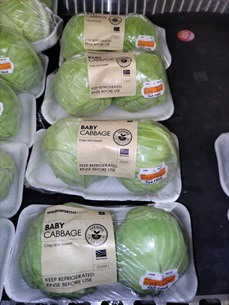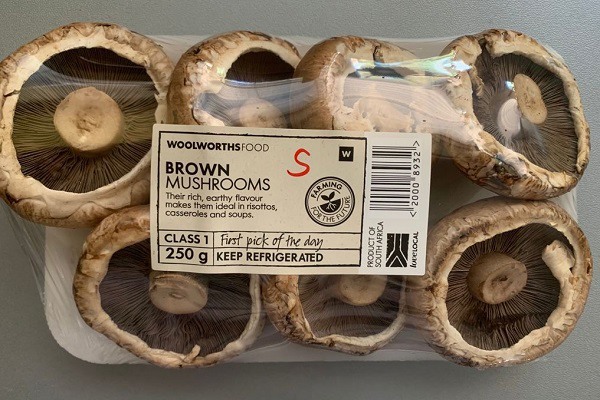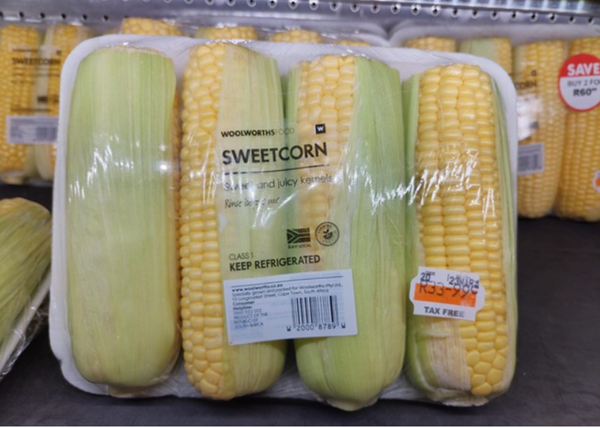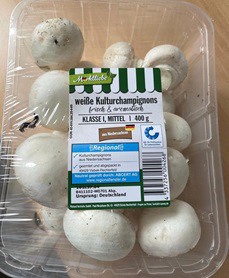Every time a sheet of PVC cling film is heatcut to cover a tray of fresh produce or meat, a puff of toxic hydrogen chloride gas is released. When it is used over hot food, as it is daily over takeaway lunches, more hydrogen chloride gas is emitted.
Polyvinyl chloride (PVC) was already in 1974 officially classified as a human carcinogen but it's only now that the screw is finally turning to have it banned from its ubiquitous uses in the food industry, and not only for its toxicity to organic life.
Due to its chemical composition, it is dangerous to recycle PVC cling film; therefore, it's not recycled anywhere. That means the millions of tonnes of used PVC cling film are guaranteed to end up in landfills or the environment.
In addition to that, there is a tendency for food to dry out under PVC, and it's astonishing that this harmful and unrecyclable product has been used for so many decades. There is a general consensus that by the end of this year, PVC will no longer be used in the Western world.
Polyethylene film enhances the strength of the post-recycled product
Ethylene gas is no longer flared into the atmosphere as before: today, the gas is harnessed and turned into polyethylene through polymerization, a one-stage process to make polyethylene cling film, which gives it a lower manufacture carbon footprint than the two stages needed to produce PVC plastic.
 "We're not PVC manufacturers looking for an alternative," says Billy McMillan, technical director at Cape Town-based Superthene which has been working on their IP design for years. "We've developed it around what we call the base principles: we use a manufacturing technique of polymers not normally used in these applications."
"We're not PVC manufacturers looking for an alternative," says Billy McMillan, technical director at Cape Town-based Superthene which has been working on their IP design for years. "We've developed it around what we call the base principles: we use a manufacturing technique of polymers not normally used in these applications."
Right: baby cabbages wrapped in Superthene
Superthene film weighs 35% to 40% less than PVC, notes Roy Keytel, Superthene director. "Just by changing to a polyethylene-based product, even if it goes to waste fill - which we sincerely hope it doesn't - the big benefit is a 40% difference in plastic going to waste."
Polyethylene is the easiest and, hence, the most recycled polymer in the world, he explains.
McMillan adds: "Our film fits into just about every recycling stream, and in fact, it enhances the strength of the product you add it to."

Five years' experience of converting Woolworths fresh suppliers
In South Africa Woolworths moved first to get rid of PVC, originally intending to eradicate it from their stores by the end of last year.
"We tried other brands of polyethylene film from a number of well-known companies across the world. It didn't work as well," says Don McFarlane, senior packaging specialist at Woolworths and 'plastic nerd.'
"It's been a long but incredible journey with Woolworths who five years ago allowed us to help 150 of their suppliers change to a healthier substitute for PVC," says McMillan. "Woolworths has given us a tremendous leg-up, their food safety standards are world-class."

Keytel remarks: "Woolworths gave us a lot of experience to wrap stuff we never believed we could wrap, like patty pans, corn, or mushrooms. Our success came with 'proteins' and we stayed away from produce because everything has a different breathing rate and moisture rate."
In the end the better quality on the shelf, particularly with mushrooms (for which they've developed a unique film) and corn, gave them the impetus to further concentrate on fresh produce.
Today, Superthene wraps mushrooms in Germany, vegetable kebabs, and corn in the USA (besides being accredited by two of the largest meatpackers in that country), and their entry into the Australian market is imminent.
Automation to hand-wrapping: Superthene works the whole room McFarlane also points out that in a more complex industry like South Africa, where some use high-speed state-of-the-art machinery and others still wrap by hand, imported polyethylene cling film was problematic as it would only work on sophisticated machines.
McFarlane also points out that in a more complex industry like South Africa, where some use high-speed state-of-the-art machinery and others still wrap by hand, imported polyethylene cling film was problematic as it would only work on sophisticated machines.
Right: Superthene in use on German mushrooms
Woolworth's broad spectrum of suppliers appreciate the attention Superthene puts into developing a multidimensional product for all users, a process during which they gained a lot of knowledge, McMillan says.
"One of the reasons we've been successful," he adds, "is because we've been able to get the material to work on probably 90% of the big brands of automatic machines."
Enquiries come in all the time, but it's a long process requiring many test rolls of Superthene to get the modifications to the blade profiles and the tensioning right. In their experience, clients in Europe and the United States have the technical expertise to get it right quickly.
"Clearly, if it goes the way we'd like it to go, it would mean manufacturing in Europe or America. We're currently in talks about that," says McMillan.
Superthene managing director Jonathan Duffett maintains that even though some food safety bodies and PVC manufacturers may still claim their product is safe, he knows of no PVC product that has a cancer association endorsement anywhere in the world.
"Our product is endorsed by the Cancer Association of South Africa as safe."
 For more information:
For more information:
Superthene
Tel.: +27 21 205 0788
Email: [email protected]
https://superthenefilms.com/
